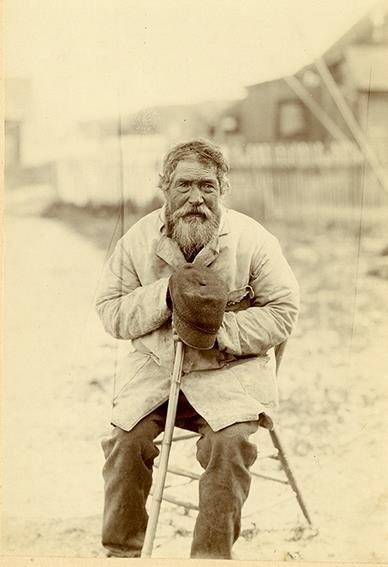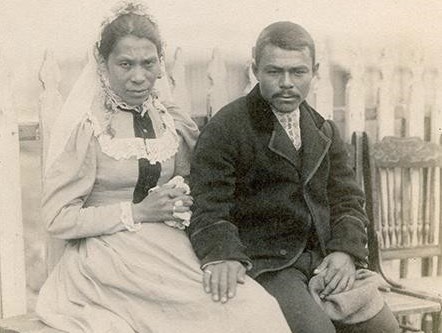
Stejneger collection,
Smithsonian Institution Archive 2009-4251
Contact: Virginia Hatfield
Duration: 2 years
Russian activities in the Aleutian chain had a profound impact on the indigenous people living on the islands, as well as the Kodiak Archipelago. Involuntarily movement of Unangan and Sugpiaq families by Russian colonial powers resulted in populating two previously uninhibited island groups – Pribilof Islands in the eastern Bering Sea and the Commander Islands in the west. During the Russian-American period, Unangan and Suqpiaq people living in the Commander Islands had opportunities – although sporadic - to maintain connections with their extended kin in Alaska, traveling (when allowed) on company ships.
The situation changed in 1867. After the US purchase of Alaska, the Commander Islands remained in Russian possession and the people residing there found themselves on the other side of the international border from their Alaskan family and friends. Since that time, the relationship between the two countries made maintaining family ties difficult and, at times, impossible. In the last few decades, contacts between the Commander Island indigenous communities and Alaska became more frequent, but the long-time separation severed family ties.
This project’s main objective is to increase understanding of historic and genealogical connections between the people of the Commander Islands and indigenous Alaskan communities, to re-energize international exchange between them, and to create lasting resources and mechanisms for preserving, sharing, and expanding this important cultural knowledge. The project results will be shared via publication, exhibition and an on-line portal.

Khabarovsk regional Museum, 8019-25
Last updated: February 26, 2021
